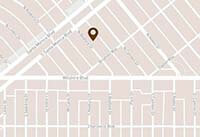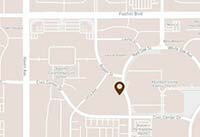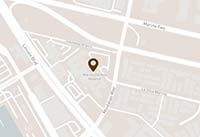What Lap-Band Surgery Is All About
This transformative procedure, performed by skilled bariatric surgeons, takes place in a well-equipped hospital or surgical center under general anesthesia. By reducing the stomach’s capacity to receive food, this scheduled, inpatient surgery is recognized for its powerful restrictive effects. Join the ranks of those achieving success through this life-changing option.
What Happens During the Procedure
During this surgery, an adjustable, inflatable silicone band is skillfully placed around the stomach, creating two distinct pouches. Picture it: a small pouch sits above the band, while a larger one resides below. These pouches are connected by a cleverly named passage called a stoma.
Now, let’s get to the good stuff. When it comes to food, the smaller pouch gets first dibs. Its petite size limits the amount you can comfortably eat in one sitting, reducing consumption.
But here’s the kicker – the lap band surgery is reversible. The band can be taken out, so don’t worry about any permanent changes to your stomach’s anatomy. And guess what? We can fine-tune the band’s effectiveness by injecting or removing saline through a nifty port beneath your abdomen’s skin. Adding saline slows down food movement, while subtracting saline picks up the pace.
No fuss, no muss – these adjustments are a breeze and can be done right at your surgeon’s office.
Ready to take the next step towards a lighter, healthier you? Let’s do this together.
Achieve Long-Term Weight Loss Success in Los Angeles
Achieving lasting weight loss goes beyond gastric banding surgery. It’s about improving and reversing obesity-related conditions like hypertension, type 2 diabetes, and sleep apnea. But before considering surgery, you need to meet certain criteria and be medically and psychologically cleared.
To be cleared for surgery, a series of preoperative tests and assessments will be conducted. These include blood tests to check lipids, thyroid function, and blood sugar levels. Nutrient screening is also important to evaluate iron, vitamin B12, folic acid, and vitamin D levels. Additionally, an electrocardiogram, chest X-ray, and overnight sleep study will be done. A psychosocial evaluation will assess your motivation and ability to follow dietary and exercise recommendations after surgery. Consulting with your primary care physician is necessary to ensure cancer screening tests are up to date. For women who become pregnant after gastric banding, pregnancy counseling and band adjustments are crucial. Lastly, smoking cessation counseling may be provided if applicable.
So, if you’re ready to take the right steps towards lasting weight loss, understanding the process and meeting the requirements is key.
Lose Weight with Realistic Expectations
This procedure can help you lose about 40%–50% of your excess weight in a span of two years. However, the ultimate success of the surgery lies in your unwavering commitment to regular, lifelong follow-up visits with your surgeon. By maintaining these visits, you can not only sustain weight loss but also prevent any complications that may arise at any point after the procedure.
Preparing for Lap-Band Surgery: Taking the Right Steps for Lasting Weight Loss in Los Angeles
Lose Weight for Good with Lap-Band Surgery
Surgery can be overwhelming, but there are ways to ease the stress. By taking the right steps to prepare beforehand, you can enhance your overall experience and feel more at ease when the time comes to head to the hospital. If you’re considering the Lap Band procedure, we’ve got you covered with clear instructions on preparation and what to expect and what you should do before undergoing Lap Band surgery.
What to Wear for Your Weight Loss Journey
Dress comfortably, while you’ll receive a hospital gown for the procedure, bringing your own cozy clothes for the rest of your stay is a popular choice.
Expect to stay overnight. Plan to spend one night (24 hours) in the hospital following the Lap Band procedure, unless complications arise and require additional monitoring. Read a pre-op checklist. On the day of surgery avoid acrylic nails, nail polish, contact lenses (glasses are fine), false eyelashes, and make-up. Dentures may need to be removed during the procedure, so check your surgeon’s guidelines.
Remember to carefully read any pre-op materials provided by your surgeon to ensure compliance with their restrictions and get ready to embark on your weight loss journey in Los Angeles!
Food and Drink Recommendations
To ensure a successful procedure and lasting weight loss, it is important to follow the necessary dietary guidelines before your surgery. In addition to the pre-op diet, there are other dietary restrictions your surgeon may recommend, such as avoiding solid food starting at midnight two days prior to surgery.
During this time, you may be advised to consume a clear liquid diet, including refreshing options like:
- Nourishing broth
- Clear soda
- Energizing coffee
- Hydrating Gatorade
- Delightful Jello
- Refreshing popsicles
- Bubbly seltzer
- Relaxing tea
- Essential water
To optimize your preparation, limiting caffeine and opting for sugar-free alternatives is also recommended. Ensuring proper hydration before surgery is vital.
Check Out the Essential Items You Need to Bring
To ensure a smooth and successful experience, it’s important to be prepared for your Lap-Band surgery. Here are some tips to help you get ready:
1. Leave your valuables at home: It’s best not to bring cash, jewelry, or other valuable items with you on the day of surgery. Instead, focus on bringing essentials that will make your recovery easier, such as a book to read and a phone charger.
2. Don’t forget your sleep aids: If you rely on a CPAP machine or other special items to sleep at night, make sure to double-check with your doctor about what will be provided to you during your stay.
3. Comfort is key: Pack a pair of slippers or sandals to wear around the hospital, and choose a loose-fitting and easy-to-put-on outfit for your ride home. A zippered or button-up shirt and drawstring pants can be great options.
4. Essential toiletries: Don’t forget to pack your eyeglasses, contact lenses, deodorant, toothbrush, and toothpaste. These everyday items will help you feel refreshed during your recovery.
5. Important documents: Bring your health insurance card, photo identification, and a list of your medications and allergies. It’s always a good idea to update your advance-directive paperwork and provide a list of emergency contacts for added peace of mind.
And finally, make sure to arrange for a designated support person to drive you home once you’re medically cleared to be discharged. Having someone by your side during this time can provide the necessary comfort and support.
Remember, taking these right steps will contribute to your lasting weight loss journey. Good luck, and may your surgery be successful!






















